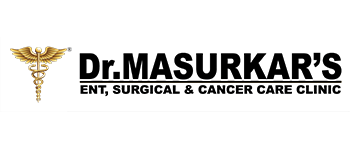A hernia is a common health problem that occurs when pressure is applied to the weak abdominal muscles. A tissue or organ is pushed through a hole in another connective muscle by this pressure.
It’s a common medical condition that may be treated with either medication or surgery. The most common form of hernia is an inguinal hernia, which appears as a bulge on either side of the groin. If you see any signs or symptoms of inguinal hernia, you should contact a doctor immediately. A hernia that is not treated might lead to major health complications.
Different Types of Inguinal Hernia
There are four types of inguinal hernias. The following are as follows-
- Direct Inguinal Hernia
- Indirect Inguinal Hernia
- Inguinal Hernia Strangulated
- Incarcerated Inguinal Hernia
Inguinal hernias both direct and indirect are the most prevalent forms of hernias.
What are the procedures for treating an inguinal hernia?
When you have a hernia, surgery is the best option since it is a quick way to get rid of it. The two types of hernia repair surgeries are open hernia surgery and laparoscopic surgery.
A cut in the pubis is used to detect the hernia sac during open hernia repair surgery. The surgeon then sutures the wound to reinforce the abdominal wall after pushing the sac into the abdomen. It’s a quick procedure, and most people may go home the same day.
What happens after Surgery?
Your doctor may ask you to get up one hour following hernia repair surgery. For a few hours, men have difficulties urinating, but with a catheter, it becomes easy.
Following the procedure, you must do the following and avoid some things like:
Do’s
- Shower after 24 to 48 hours of surgery.
- Walking is essential for maintaining physical fitness. As a result, take a daily slow walk without straining your abdominal muscles.
- You can continue your regular diet and eat whatever you like.
- Take your medications as directed by your doctor on a regular basis.
- Stay hydrated by drinking plenty of water.
Don’ts
- Don’t put a lot of stress on your body. When you’re exhausted, take a break.
- Lifting heavy weights should be avoided.
- Hands should be washed every time you touch your wound, as touching it with unwashed hands might cause infection.
- Tight clothing should be avoided since it may affect the wound.
- Rather than eating heavy meals, consider eating small, regular meals.
- Between 1 to 10 days following surgery, you may have your first bowel movement. As a result, there is a greater risk of constipation. Consume foods that can help you avoid constipation.
- You can ride in a car, but keep in mind that car jerks might cause the wound.
- If you’re having any serious problems, see a doctor right away. Neglecting the wound might make it worse.
What should you do to prepare for an inguinal hernia repair?
You should see a doctor as soon as you notice any signs or symptoms of a hernia. If surgery is required, the doctor will recommend you to a surgeon. To your doctor, you should always bring a list of your prescriptions and medications.
It’s also critical to know which medications you need to stop taking before the surgery. You can also discuss the procedures with your doctor, depending on your medical situation. On the night before your surgery, your doctor may advise you to stop eating. To prevent walking after surgery, it’s best to arrange a cab ahead of time.
Conclusion:
Surgeries are frequently the safest and quickest way to remove a hernia. The majority of patients go home the same day they have surgery. However, you must follow the doctor’s instructions and seek medical advice if any problems arise, either before or after the operation.






